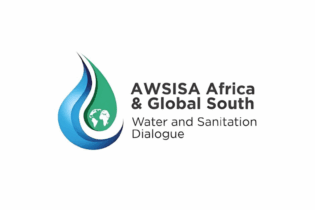Zutari, formerly known as Aurecon, has reaffirmed its positioned to partner with clients to co-create fit-for-purpose solutions for infrastructure development.
Barely a month after the historic Sustainable Infrastructure Development Symposium of South Africa, a ‘new’ player is launched in the infrastructure space with a primary focus on engineering impactful infrastructure projects in Africa. Zutari CEO Dr Gustav Rohde is quick to point out that the ‘new’ company is really one of the oldest in the industry on the continent. Formerly known as Aurecon, it was born from the merger of Africon, Connell Wagner and Ninham Shand in 2009. In October 2019, the owners of Aurecon Africa took the bold decision to demerge from the global business, headquartered in Melbourne, Australia. The process subsequently culminated in Zutari. The name is derived from the Swahili words for ‘invent’ and ‘nectar’, namely mzulia and nectari.Adapting to changing markets
Back in October 2019 no one could have predicted that the beginning of 2020 would see the emergence of a global pandemic, with Covid-19 having a devastating impact on both a macro-economic and a community level. Rohde, however, highlights that management could already see the winds of change push back against globalisation as early as September 2019. “We could see the market changing, and so decided to demerge from the global company to be proudly African. It is interesting how the pandemic has accelerated this trend towards localisation, especially as borders remain closed and international travel continues to be restricted. The fact that we are a private, management-owned company with African owners makes our commitment real – we have a vested interest in our clients’ success,” he says.
Strong foundations
About 75% of Zutari’s nearly 2 000-strong multi-disciplinary employees are professional engineers, technologists or scientists. “I think there are very few companies that can match our local capacity, long-standing presence and understanding of the challenges required to operate successfully across this continent,” stresses Rohde. It is this deep skills base and long-standing presence on the continent that Zutari taps into to make a tangible difference in Africa. “It is all about making a difference. This refers to responsible infrastructure projects that generate employment and improve local communities.” Zutari aims to achieve these goals by partnering with its clients in a process of ‘co-creation’ to derive at joint solutions that matter.Solutions for Africa
The ‘new normal’ ushered in by the Covid-19 crisis saw the entire company transition successfully to remote working in March – a week before the hard lockdown came into effect. The company steadily introduced digital technologies over the last decade, an investment now clearly paying dividends. Zutari is uniquely positioned to take on the challenges of working in Africa, where many project sites are remote and access is difficult. Rohde explains that the new company will focus exclusively on solutions that are appropriate for the continent. “What might be feasible for highly-developed markets like the US or Australia may not necessarily be affordable, let alone viable here. It is our vision and our commitment to achieving the full potential of Africa.” “Infrastructure has been rightfully identified as a catalyst for growth and development. Many global companies who attempt to enter the African market do not know the best way to tackle its problems. We are right there at the coal face, where we can make the biggest impact possible.”






